


ERP and blockchain now work together to improve how businesses manage their operations. This pairing takes the planning abilities of ERP and adds blockchain’s secure way of recording information. But what exactly is blockchain ERP, and how can it help your company?
This guide explores blockchain ERP basics, key benefits, essential features, and real-world applications across industries. It will also help you decide if this technology makes sense for your business needs.
%20(1)%20(1)%20(1)%20(1)%20(1).avif)
Enterprise Resource Planning (ERP) systems are software platforms used to manage day-to-day business operations. These include accounting, procurement, supply chain management, and manufacturing processes — all connected to a single database.
Blockchain ERP combines traditional ERP functionality with blockchain technology — a decentralized, distributed digital ledger that records transactions across multiple computers. Unlike conventional databases where records can be altered, blockchain creates an unchangeable history of transactions that all network participants can trust.
In practice, blockchain ERP systems allow businesses to track products through supply chains, automate payments, verify the authenticity of goods, and create audit trails.
For example, a manufacturer can record every component’s journey from raw material to finished product, while suppliers, distributors, and customers can access this verified information.
Certain features are essential for achieving the full benefits of this technology. Here are these components that work together to create a secure and efficient business platform.
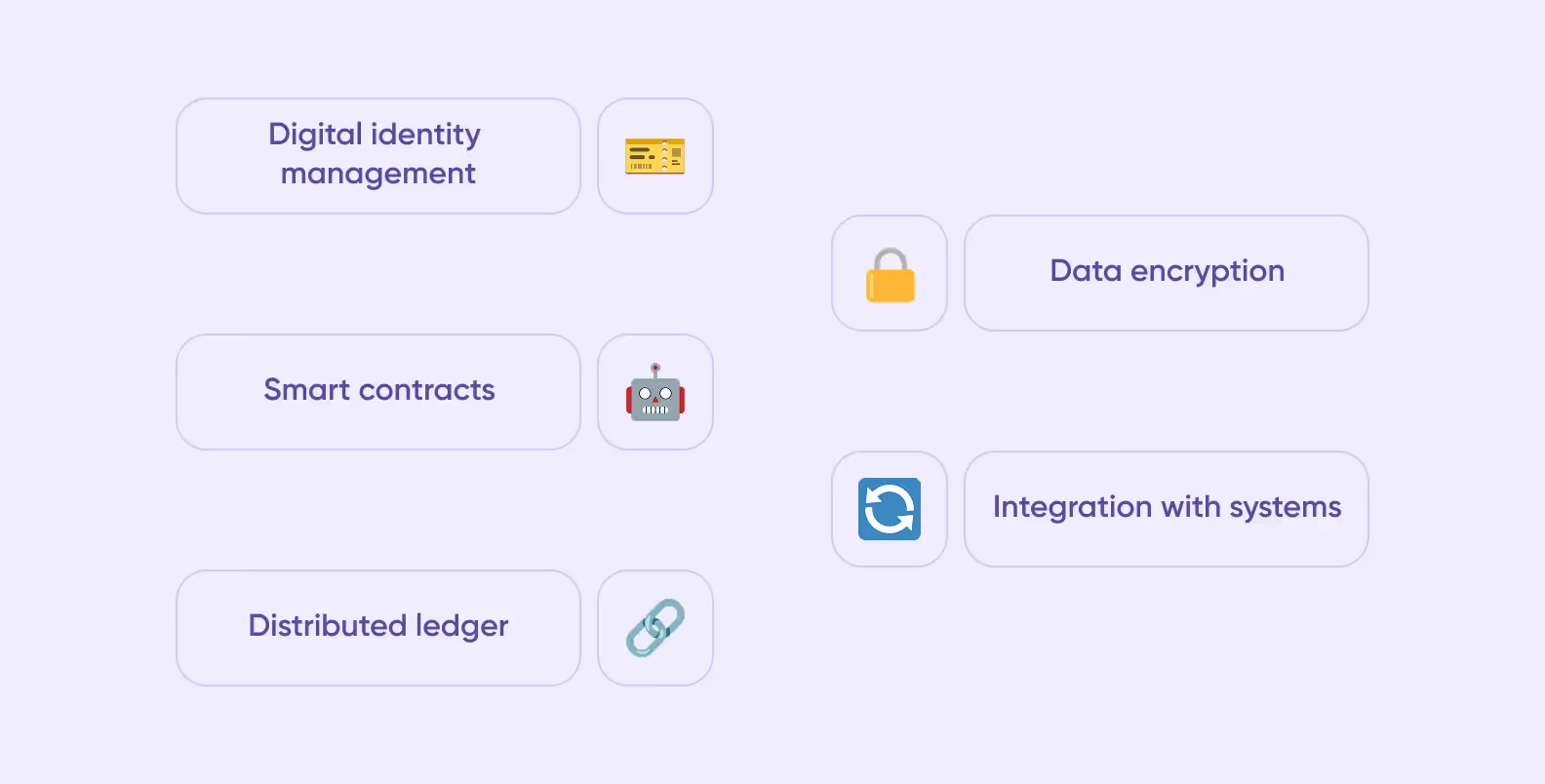
A blockchain ERP must have identity systems to verify users and organizations on the network. Each participant receives unique digital credentials that control their access permissions and transaction authorization rights.
These identities allow the system to track who modified information, who approved transactions, and when these actions occurred. Strong identity management ensures accountability while protecting sensitive operations from unauthorized access.
The foundation of any blockchain ERP is its distributed ledger — a synchronized database replicated across multiple computers. Unlike traditional systems where each company maintains its own separate records, a distributed ledger creates a single source of truth shared by all participants.
This eliminates the need to reconcile conflicting information between different organizations and reduces errors caused by manual data entry or outdated information.
Smart contracts are self-executing programs stored on the blockchain that automatically enforce agreement terms when predetermined conditions are met.
For example, a smart contract could release payment when delivery confirmation is recorded or trigger reordering when inventory levels drop below a specified threshold. This reduces delays, cuts administrative costs, and enforces consistent rule application.
While blockchain promotes transparency, businesses still need to protect confidential information. Advanced encryption and selective disclosure mechanisms allow companies to share only necessary details with specific partners.
For instance, a supplier might see order quantities but not pricing arrangements with other vendors. These controls balance openness with appropriate confidentiality protection across complex supply chains.
Few companies can replace all existing systems at once, so blockchain ERP solutions must connect with traditional software. APIs and middleware tools should allow data to move between blockchain networks and conventional databases, accounting systems, or manufacturing applications.
This integration capability ensures businesses can adopt blockchain gradually without disrupting current operations.
<div class="post_divider"></div>
⭐ Our experience
We helped a client design a cryptocurrency wallet that makes complex blockchain technology accessible to everyone. While most crypto wallets overwhelm beginners with technical features, our approach focused on making the technology invisible.
Users care about what they can do, not how blockchain works behind the scenes. We designed an interface with intuitive navigation, one-click setup, and a visually appealing dark theme with bright accents that highlight important actions.
By integrating blockchain games and adding NFT purchasing capabilities, we removed technical barriers that were causing users to abandon applications.
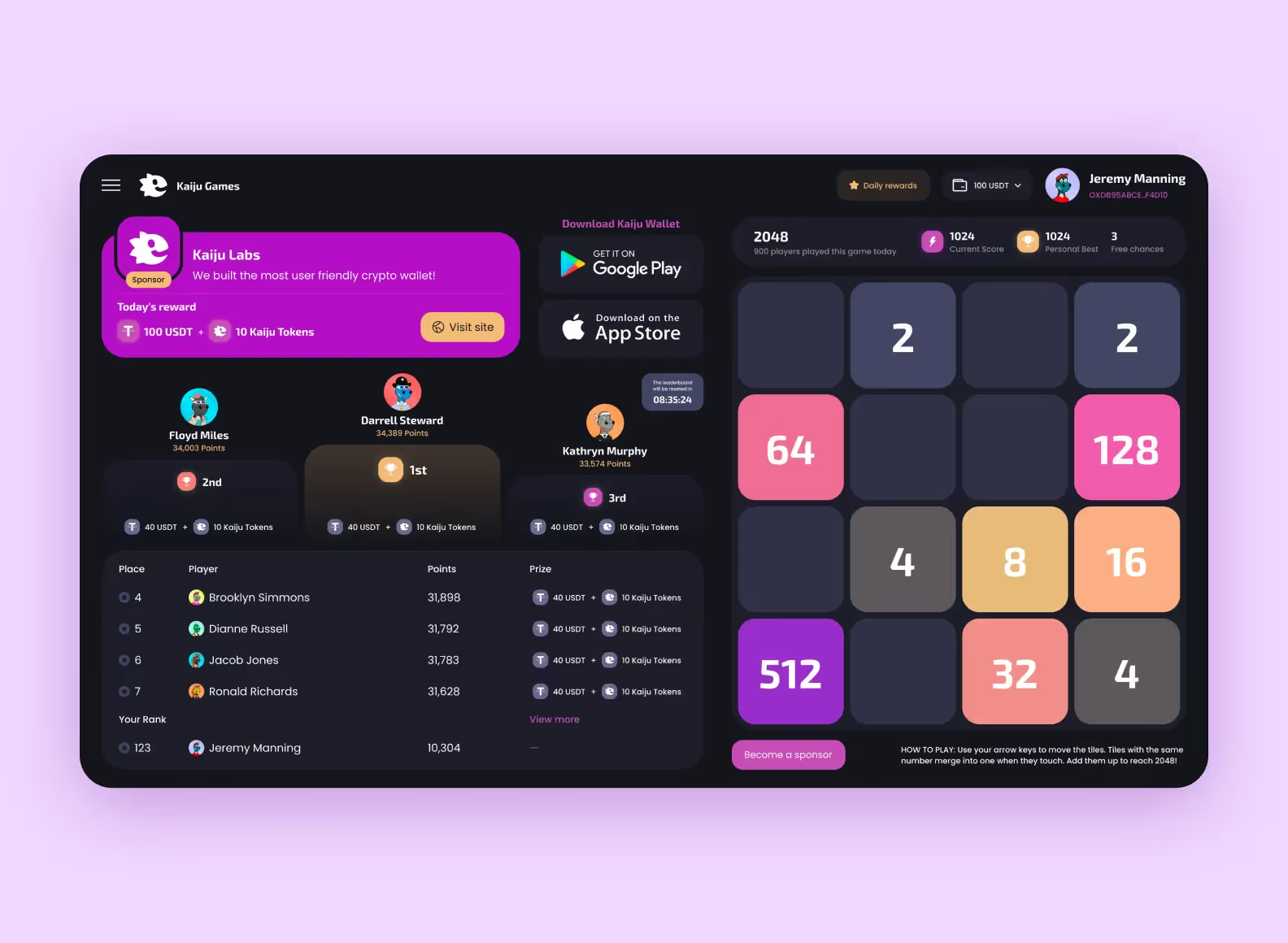
<div class="post_divider"></div>
When integrated with ERP systems, blockchain technology brings several practical benefits that address common business challenges. Let’s take a closer look.
Traditional ERP systems store data in centralized databases, making them vulnerable to hacking, data loss, or manipulation. Blockchain creates a tamper-proof record of all transactions because each “block” of data is cryptographically linked to the previous one.
Once information is recorded, it cannot be altered without changing the rest of the blocks. This makes unauthorized changes nearly impossible and provides businesses with a reliable audit trail for financial reporting, compliance, and dispute resolution.
Blockchain ERP allows all authorized participants to access the same information in real-time. This shared view eliminates discrepancies between different company departments or between business partners.
For products moving through a supply chain, blockchain creates an unbroken chain of custody. Each step is permanently recorded with timestamps and location data. This traceability helps quickly identify the source of defective products, reduce counterfeiting, and prove ethical sourcing claims.
In ERP systems, smart contracts trigger payments when goods arrive at a warehouse, apply discounts when purchase volumes reach certain thresholds, or release funds to suppliers once quality checks are passed. This automation reduces paperwork, speeds up business processes, and minimizes the need for intermediaries.
<div class="post_divider"></div>
⭐ Our experience
We built Broex, an app that simplifies crypto trading. Our main goal was making crypto accessible to beginners by using familiar fintech design patterns instead of the typical cyberpunk look seen in most crypto apps.
We implemented several automated processes to improve the user experience, including optimized real-time data handling that prevented smartphones from overheating.
To manage performance efficiently, we balanced which data needed constant updates versus periodic refreshes. Additionally, the app features automated biometric authentication (Face ID and Touch ID), streamlined KYC verification, and pagination for transaction history.
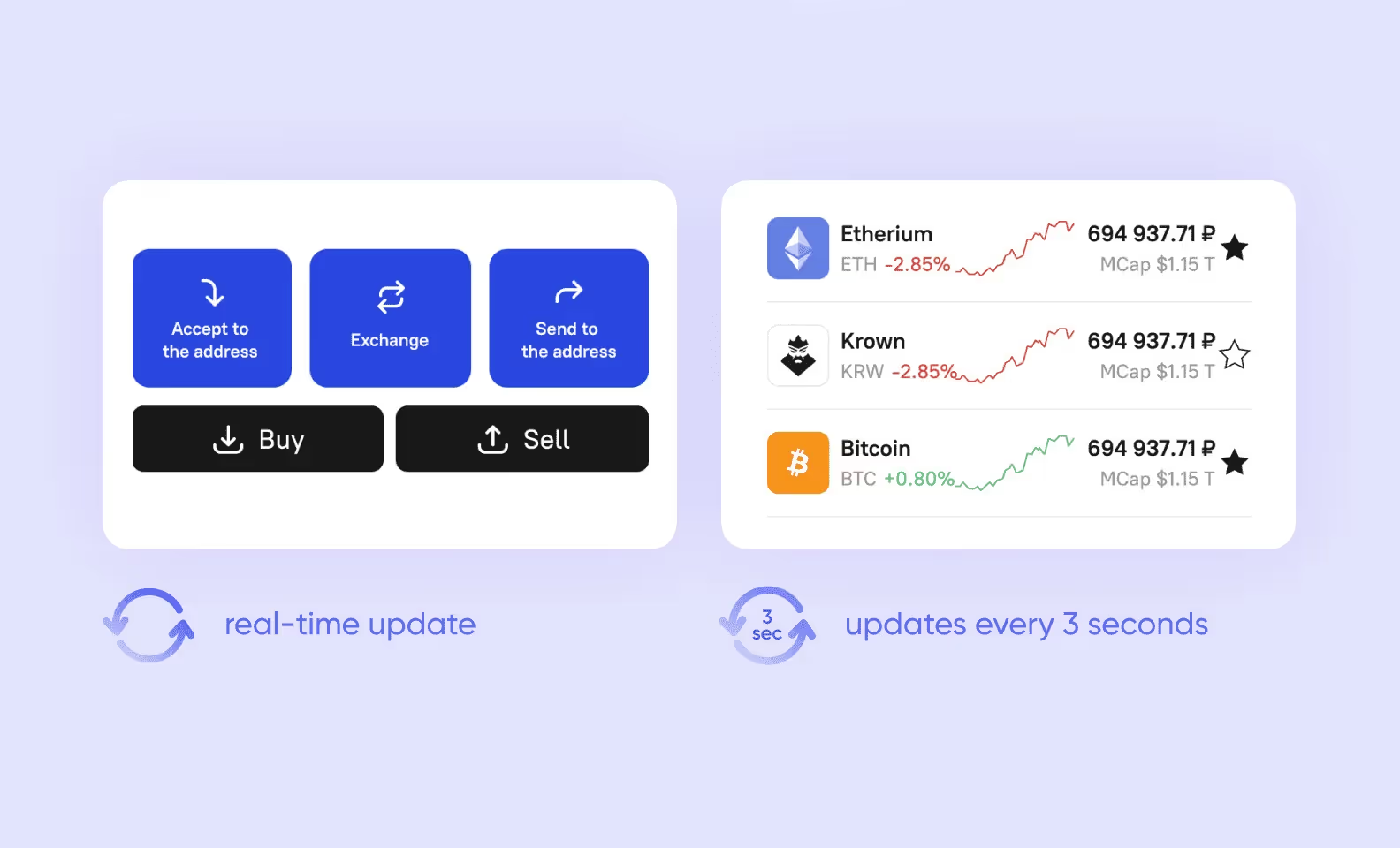
<div class="post_divider"></div>
Blockchain’s decentralized nature means that ERP data exists simultaneously across multiple network nodes rather than in a single location. This redundancy provides protection against system failures — if one server goes down, the network continues to operate without disruption.
Additionally, blockchain’s consensus mechanisms ensure that all transactions are validated by multiple participants before being added to the ledger. This reduces errors and provides consistent data across the organization.
Let’s see how enterprise blockchain technology delivers business value across industries.
The luxury industry faces persistent challenges with counterfeiting and authentication. In response, LVMH, Prada Group, Richemont’s Cartier, and OTB Group established the Aura Blockchain Consortium in 2022 to create technological standards for the luxury industry.
This private blockchain platform enables brands to provide customers with irrefutable proof of authenticity by creating digital product passports that trace items from raw materials to finished products.
Trust in food sourcing became Nestlé’s primary motivation for exploring blockchain technology. As the world’s largest food manufacturer, the company recognized an opportunity to rebuild consumer confidence through unprecedented supply chain transparency.
For its luxury coffee brand Zoégas, Nestlé implemented a blockchain system allowing buyers to scan QR codes to access data about the coffee’s origins in Brazil, Rwanda, and Colombia. The system displays information about farmers, harvest times, and Rainforest Alliance certification.
BMW’s PartChain initiative demonstrates blockchain’s value in complex automotive supply chains. The German automaker uses blockchain to create tamper-proof records of components and raw materials as they move through international supply networks.
Initially piloted in 2019 for tracking front lights between two plants and a lighting supplier, BMW has since expanded the program to include more suppliers.
Starbucks’ “bean-to-cup” initiative connects consumers directly with producers. Using Microsoft's Azure blockchain service, Starbucks created a system allowing customers to trace the journey of their coffee from farm to cup.
Farmers also receive access codes allowing them to track where their beans end up, addressing a longstanding information gap.
Despite its promising benefits, implementing blockchain technology in enterprise resource planning systems presents potential issues.
Most businesses operate with established ERP systems that have evolved over many years. Connecting blockchain technology to these legacy systems often requires custom interfaces or middleware to bridge the gap between old and new architectures.
Companies frequently discover that their existing data structures don’t translate easily to blockchain models. The problem extends to operational processes that must be redesigned to accommodate blockchain’s distributed approach to data management.
Current blockchain technologies still struggle with processing large transaction volumes quickly. While traditional databases can handle thousands of transactions per second, many blockchain networks manage only dozens.
This performance gap becomes particularly problematic for large enterprises that process massive data volumes across multiple departments. Additionally, as blockchain ledgers grow over time, storage requirements increase, requiring additional infrastructure investments.
The regulatory requirements for blockchain remain unclear in many industries and regions. Requirements for data storage location, information privacy, and transaction verification vary widely across countries.
Additionally, legal questions about smart contract enforcement, liability for automated transactions, and cross-border data movement remain unresolved in many jurisdictions.
Blockchain ERP projects require significant upfront investment. Beyond software licensing, costs include specialized blockchain developers, security experts, infrastructure upgrades, and extensive testing.
Companies often underestimate ongoing maintenance expenses, which include network management, security updates, and continued integration work as systems evolve. The relatively limited pool of blockchain specialists further drives up personnel costs.
<div class="post_divider"></div>
⭐ Our experience
We helped a client build a cryptocurrency wallet that needed to connect with multiple blockchain networks. Instead of building everything from scratch (which would have taken 6–8 months and cost around $200,000), we found a smarter approach.
By integrating with existing APIs, we created a working wallet that could handle multiple currencies in just 3 months for less than half the original budget. This let us quickly add features like tracking transaction history, connecting to multiple blockchains, and ensuring security compliance.

<div class="post_divider"></div>
Creating effective blockchain ERP solutions requires a structured approach that balances technical requirements with business objectives. Our development process follows a clear path from initial concept to deployment and ongoing maintenance.
We begin by thoroughly understanding your specific challenges and objectives. This analysis identifies processes that would benefit most from blockchain technology, such as supply chains requiring better traceability or fintech systems needing enhanced security.
Taking some time for a dedicated product discovery phase can help address specific pain points better. This preliminary engagement helps clarify opportunities without committing to full implementation.
During discovery, we conduct workshops with stakeholders, analyze competitors’ blockchain initiatives, and create proof-of-concept demonstrations to validate assumptions.
<div class="post_divider"></div>
⭐ Our experience
We had a client who wanted to build a commission-free taxi service to compete with Uber. Instead of jumping straight into development, we conducted a discovery phase first – interviewing passengers, analyzing competitors, and testing the financial model.
Using impact mapping and the JTBD framework, we identified six critical customer needs, including security with trusted drivers and reliable service for long-distance rides.
The findings helped our client make an informed decision to proceed with development, adjusting the plan to the customers’ needs. Investing $3,000 in discovery saved them $160,000 on an unnecessary product.
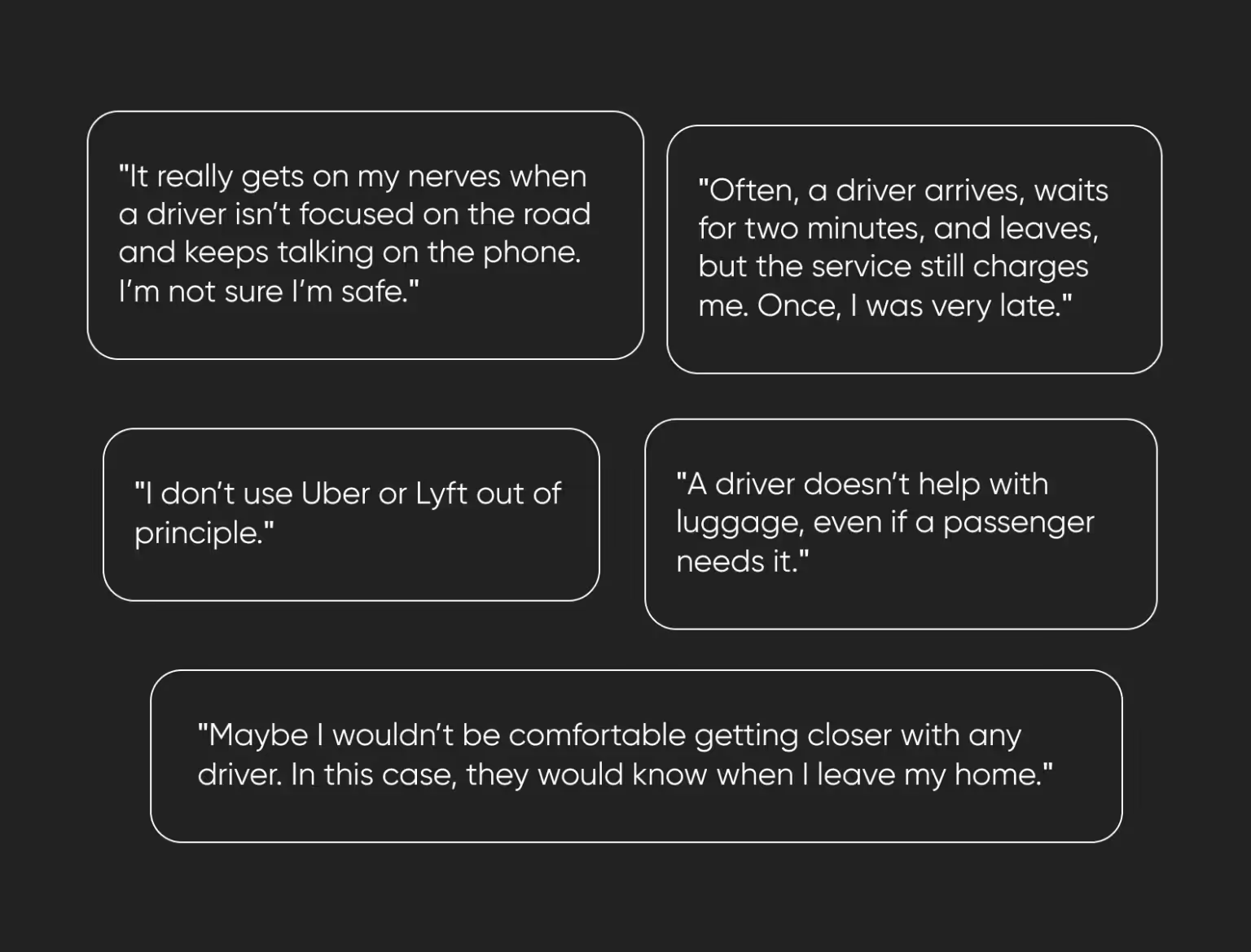
<div class="post_divider"></div>
Based on business requirements, we design a blockchain architecture that specifies network type, consensus mechanisms, and data structures. This phase determines whether a public, private, or hybrid blockchain best suits your needs.
We select appropriate protocols (such as Ethereum, Hyperledger Fabric, or Corda) based on security requirements, transaction volume, and compatibility with existing systems. The architecture design includes defining participant roles, access permissions, and the specific information stored on the blockchain versus conventional databases.
Smart contracts form the operational core of a blockchain ERP system. Our development process includes formal verification methods to mathematically prove contract behavior and eliminate potential exploits.
Each smart contract undergoes multiple code reviews and follows established design patterns that have proven reliable in production environments. We document all contract logic clearly, ensuring business stakeholders understand exactly how automated processes will function.
Connecting blockchain components with existing ERP systems requires careful integration work. We develop APIs and data bridges that allow information to flow seamlessly between blockchain networks and conventional databases.
We pay particular attention to data transformation logic that maintains consistency between different system architectures. Where necessary, we implement staging databases or middleware solutions to handle complex data synchronization requirements.
Blockchain ERP systems undergo testing beyond standard software verification. We conduct specialized security audits to identify potential vulnerabilities in smart contracts, consensus mechanisms, and network configurations.
Our testing protocols include simulated attacks and failure scenarios to verify system resilience. We also validate business logic across multiple scenarios to ensure automated processes produce expected outcomes in all circumstances. Furthermore, we incorporate usability testing to ensure the effectiveness of the blockchain UX design.
Deployment follows a phased approach, often beginning with parallel operations alongside existing systems. This controlled transition minimizes disruption while allowing gradual adaptation to new workflows.
After launch, our support team monitors network health, manages software updates, and assists with operational questions. We establish governance procedures for managing network participants, resolving disputes, and implementing future enhancements.
The blockchain ERP market is booming — from $4.68 billion in 2024 to $557.9 billion by 2034, growing over 60% yearly. About three-quarters of U.S. companies are using or planning to use blockchain.
But does this mean your business should join the trend? These five signs will help you decide if your company should consider blockchain.
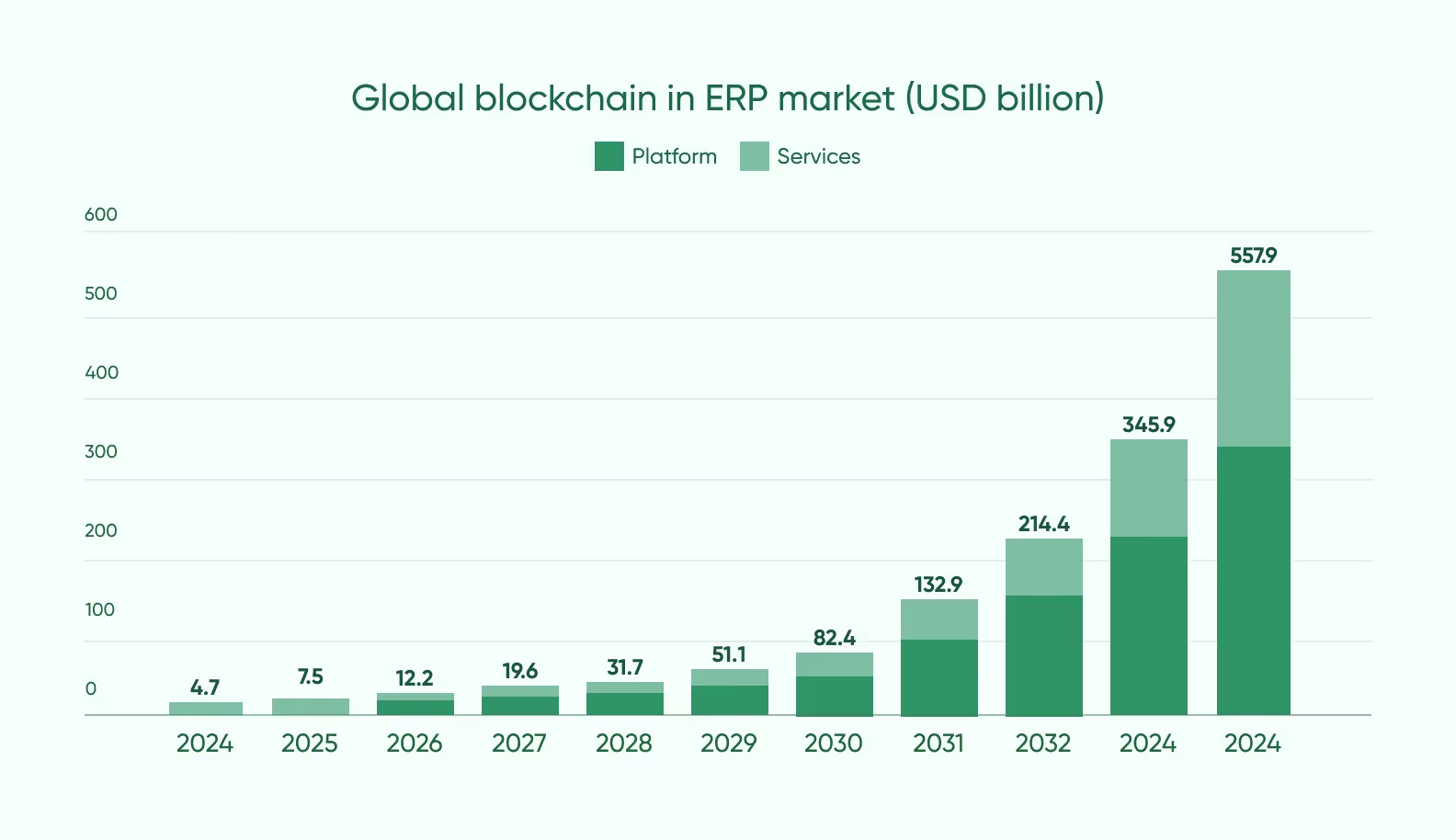
Consider blockchain when your supply chain involves multiple independent partners and requires precise tracking of materials or products. This is relevant for industries with contamination risks, counterfeiting, or ethical sourcing concerns.
Blockchain becomes valuable when data tampering would cause significant business damage or compliance violations. If your company has experienced data manipulation incidents or operates in environments where record integrity is essential, blockchain could be the answer.
Its cryptographic protection and distributed verification provide meaningful advantages over conventional security approaches.
If your customers increasingly request verification of product claims, blockchain offers a transparent solution. When customer trust directly impacts sales and premium pricing, blockchain becomes valuable.
Whether for luxury goods buyers wanting proof against counterfeits or food consumers seeking evidence of organic practices, blockchain’s verifiable digital product passports offer a competitive advantage.
Industries facing strict documentation requirements benefit from blockchain's automated audit trails. If your compliance processes consume significant resources or still face audit challenges despite these investments, consider blockchain solutions.
Its ability to automatically generate verifiable records could substantially reduce compliance costs while improving reliability.
Sometimes the most practical reason to implement blockchain ERP comes when key suppliers, customers, or industry groups adopt blockchain platforms. Participation may become necessary to maintain business relationships, making the decision less about blockchain’s abstract benefits and more about preserving essential business connections.
Blockchain ERP systems offer transformative benefits for businesses seeking better security, transparency, and automation. While implementation challenges exist, organizations with the right use cases can achieve significant competitive advantages.
➡️ <a class="blog-modal_opener">Contact Purrweb today</a> to explore how we can help you successfully integrate blockchain technology into your enterprise systems.